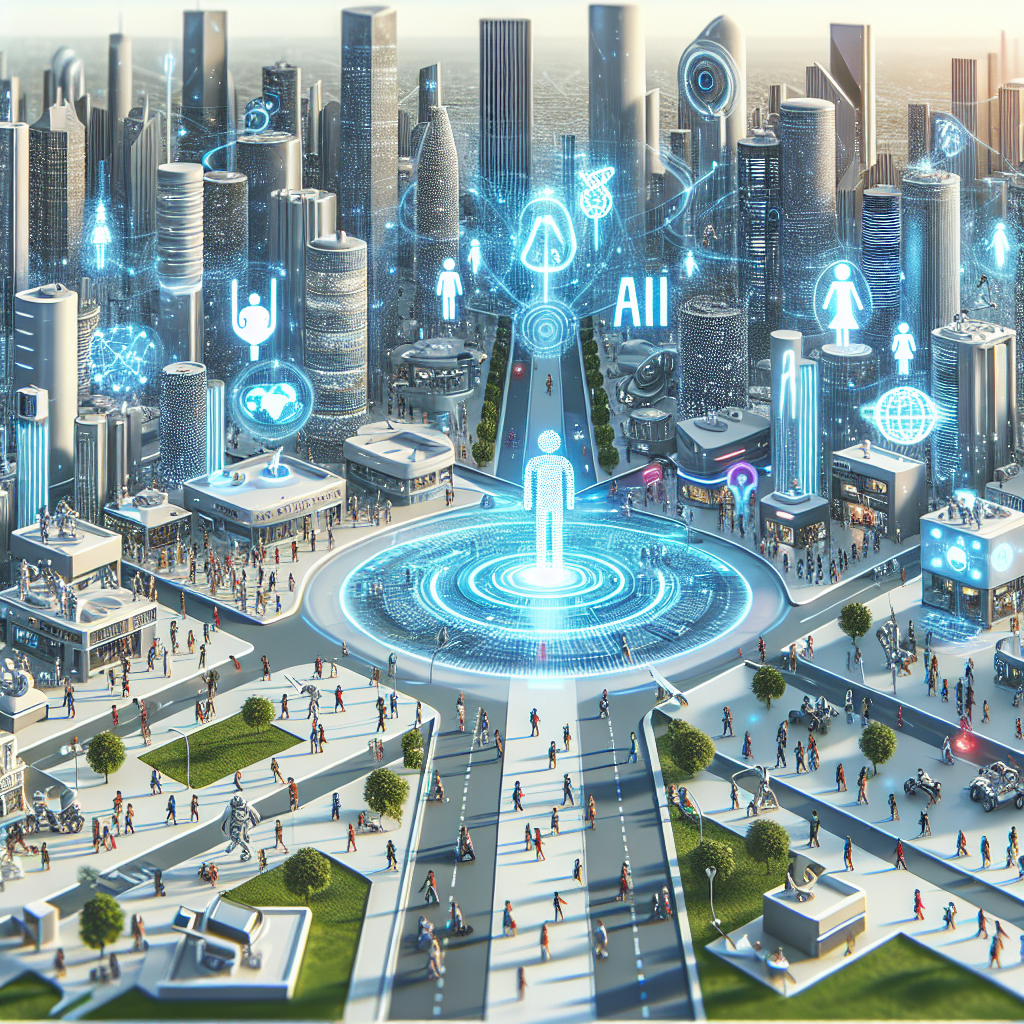The Future of AI: A Society Where Technology is for Everyone
Artificial Intelligence (AI) has become a ubiquitous part of our daily lives, from virtual assistants like Siri and Alexa to self-driving cars and personalized recommendations on streaming services. As AI continues to advance at a rapid pace, many are wondering what the future holds for this transformative technology and how it will shape society as a whole.
One of the most exciting prospects of AI is the potential to create a more inclusive and equitable society where technology is accessible to everyone. In the past, technology has been primarily designed and developed by a small group of individuals, leading to biases and inequalities in its implementation. However, with the democratization of AI, more people have the opportunity to contribute to its development and ensure that it benefits all members of society.
In a society where technology is for everyone, AI can be used to address pressing social issues such as poverty, inequality, and access to education. For example, AI-powered tools can help identify and address systemic biases in hiring practices, ensure fair and accurate credit scoring, and provide personalized learning experiences for students of all backgrounds. By leveraging AI in these ways, we can create a more just and inclusive society where everyone has the opportunity to thrive.
Additionally, AI has the potential to revolutionize healthcare by enabling more personalized and efficient treatments for patients. With AI-powered tools, healthcare providers can analyze vast amounts of data to predict and prevent diseases, tailor treatments to individual patients, and improve the overall quality of care. This can lead to better health outcomes for all individuals, regardless of their socio-economic status or geographic location.
Furthermore, AI can enhance our understanding of the environment and help us address pressing environmental challenges such as climate change and deforestation. By using AI to analyze satellite imagery, monitor wildlife populations, and predict natural disasters, we can better protect our planet and ensure a sustainable future for generations to come.
However, as AI continues to advance, it is important to address the ethical and societal implications of this technology. One of the key concerns surrounding AI is the potential for job displacement as automation becomes more prevalent in various industries. While AI has the potential to create new job opportunities and increase efficiency in the workforce, it is crucial to ensure that workers are equipped with the skills and training necessary to adapt to a rapidly changing labor market.
Moreover, there are concerns about the misuse of AI for nefarious purposes, such as surveillance, discrimination, and manipulation. It is essential for policymakers, researchers, and industry leaders to collaborate and establish ethical guidelines and regulations to ensure that AI is used responsibly and for the benefit of society as a whole.
In conclusion, the future of AI holds immense potential to create a more inclusive and equitable society where technology is accessible to everyone. By leveraging AI to address social issues, revolutionize healthcare, and protect the environment, we can build a better future for all individuals. However, it is crucial to address the ethical and societal implications of AI and ensure that it is used responsibly and ethically. Only then can we truly harness the transformative power of AI to create a brighter future for all.
FAQs
Q: What are some examples of how AI is being used to address social issues?
A: AI is being used to address social issues such as poverty, inequality, and access to education. For example, AI-powered tools can help identify and address systemic biases in hiring practices, ensure fair and accurate credit scoring, and provide personalized learning experiences for students of all backgrounds.
Q: How can AI revolutionize healthcare?
A: AI can revolutionize healthcare by enabling more personalized and efficient treatments for patients. With AI-powered tools, healthcare providers can analyze vast amounts of data to predict and prevent diseases, tailor treatments to individual patients, and improve the overall quality of care.
Q: What are some concerns surrounding the future of AI?
A: Some concerns surrounding the future of AI include job displacement, ethical implications, and potential misuse for nefarious purposes such as surveillance, discrimination, and manipulation. It is essential for policymakers, researchers, and industry leaders to collaborate and establish ethical guidelines and regulations to ensure that AI is used responsibly and for the benefit of society as a whole.

